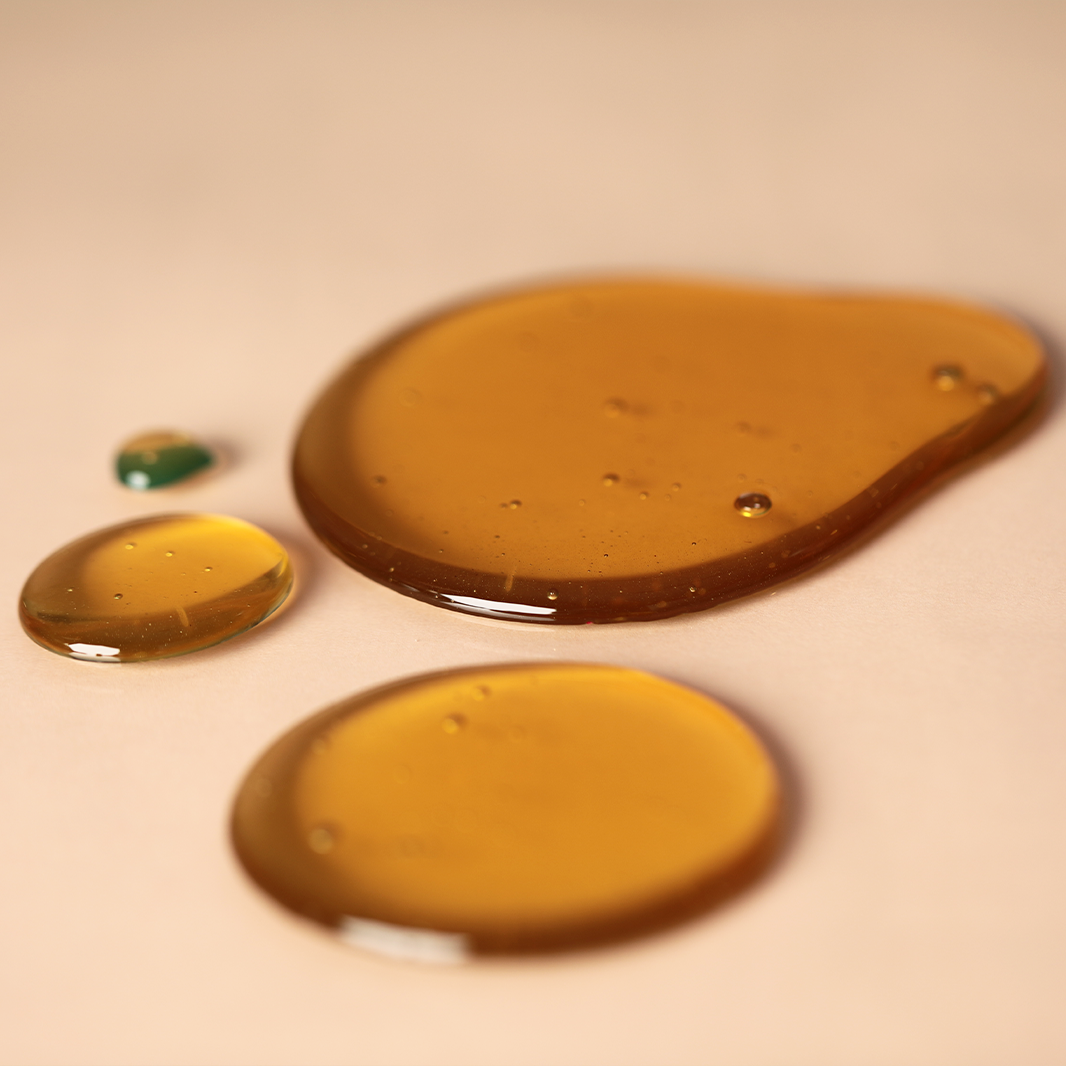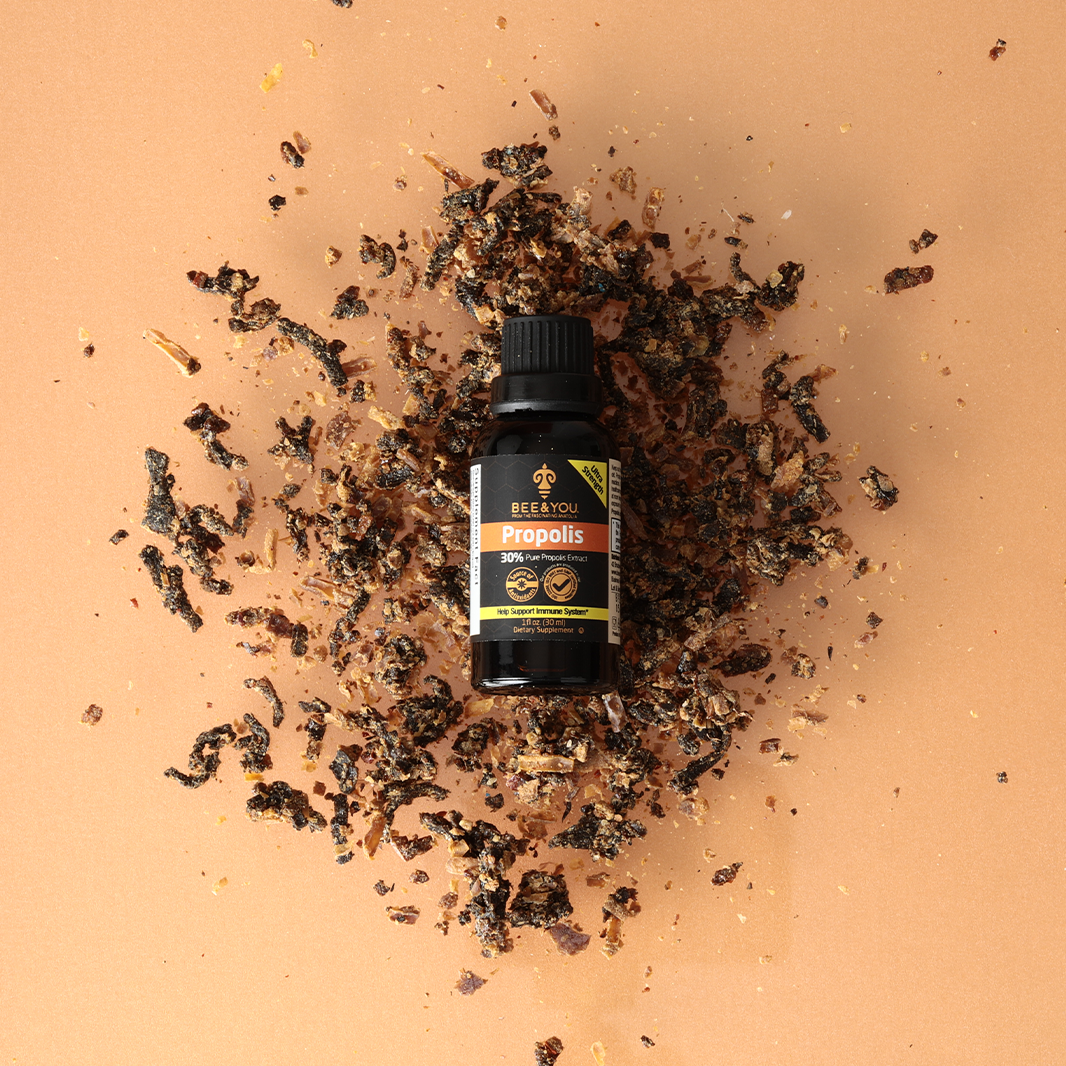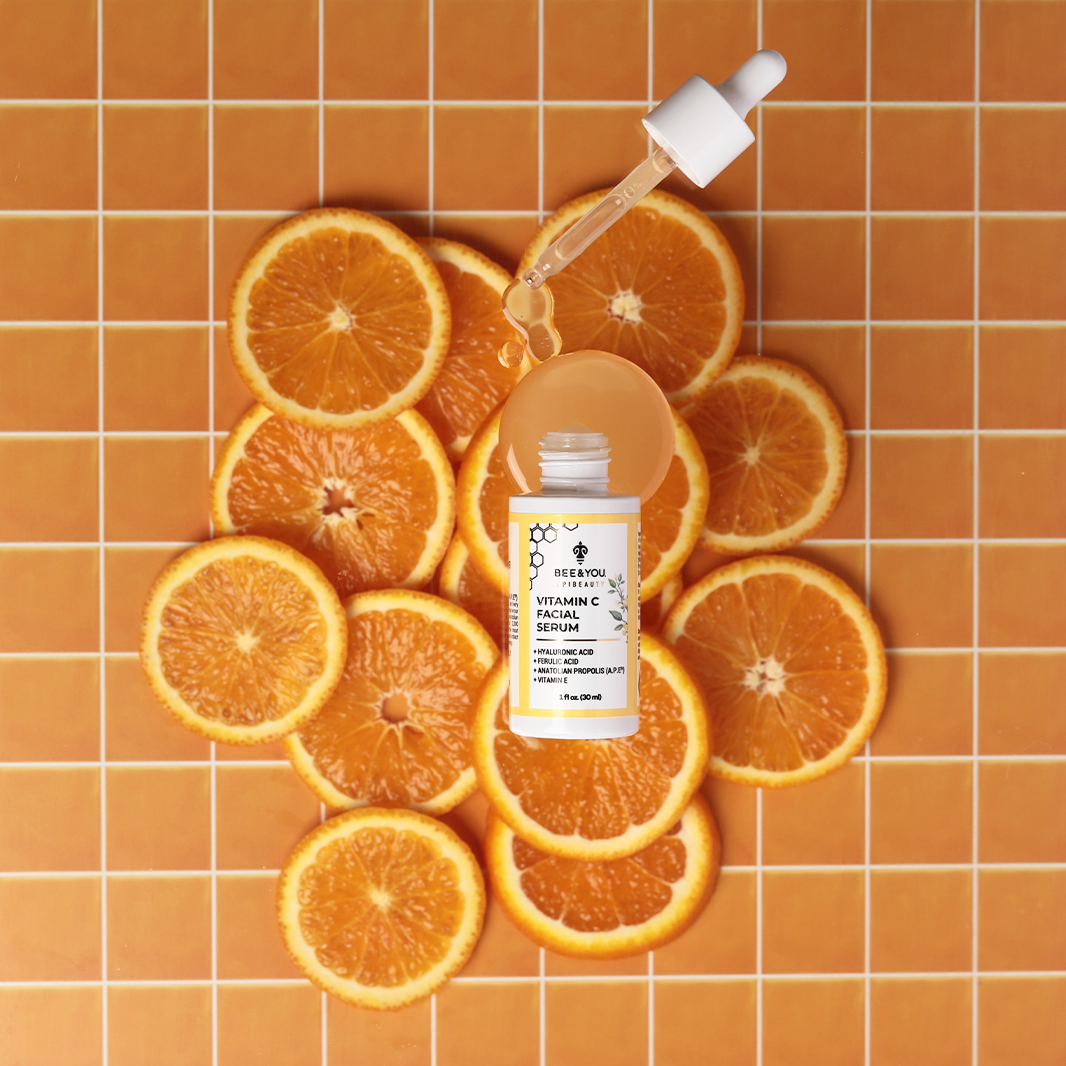What is Bee Pollen?
Pollen is collected by worker bees that bring honey to the hive from the stamens of flowers. It is gathered and stored on the bees' hind legs, moistened with nectar or honey. Honey bees, unintentionally carrying pollen on their bodies while collecting nectar, facilitate pollination in plants and gather the necessary pollen for the bees' nutrition.
A single bee can carry 15-45 mg of pollen, proportional to its body weight, in one trip to the hive. The annual pollen production of colonies varies depending on colony size and environmental conditions (climate, vegetation, etc.). Stored pollen in the hive is preserved by adding honey or liquid to the cells it is placed in. The nutritional composition of pollen varies depending on the region where it is collected. Therefore, although there is no exact standard for the nutritional values of pollen, it generally contains about 4-15% water, 7.5-40% protein, 1.3-7% lipid, and 1-3.5% vitamins and minerals. In addition to its nutritional value, bee pollen is a highly beneficial natural food due to its biological activity.
How is Bee Pollen Produced?
Worker bees, which visit numerous flowers every day to produce honey, bring the pollen from these flowers to the honeycombs while collecting nectar. Pollen is collected using pollen traps attached to the front of the beehives. The collected pollen is dried using proper methods and under the right temperature and humidity conditions, ensuring the preservation of its nutritional value.
How to Consume Bee Pollen?
Bee pollen is commonly consumed by mixing it with other foods. Children are recommended to consume 1-2 teaspoons of bee pollen per day, while adults consume 2-4 teaspoons daily. Bee pollen can be consumed by chewing it directly or mixed with milk, water, fruit juice, yogurt, honey, or other products according to preference. Additionally, bee pollen can be found in tablet form, often combined with propolis and royal jelly.
What are the Effects of Bee Pollen on Digestive Health?
Bee pollen can have various positive effects on digestive health. Here are some of the scientific studies on the impact of bee pollen on digestive health:
A scientific study at Nanchang University in 2020 investigated the effect of pollen supplementation on rats with dysbiosis (intestinal microbiota balance is impaired) under antibiotic treatment. During three weeks, intestinal barrier functions, permeability, and inflammatory responses were followed upon pollen supplementation at different doses in 60 rats divided into six groups; -1st group - control group consisting of rats with dysbiosis -2nd &3rd group - rats with dysbiosis receiving antibiotic treatment -4th group - 100 mg/kg pollen support -5th group - 200 mg/kg pollen support -6th group - 300 mg/kg of pollen support. Researchers reported that pollen is a natural functional food that can improve intestine barrier integrity by regulating gut microbiota. The study showed that increased pollen consumption positively affected intestinal functions that deteriorated due to antibiotic use.
Another scientific study conducted at Northwest University in 2019 investigated the effect of pollen on phenolic composition, a fatty liver disease independent of alcohol consumption, and intestinal microbiota.
- The results showed that pollen exhibited a prebiotic effect on the intestinal microbiota, significantly altering the intestinal microbial composition by increasing bifidobacterium and bifidobacteriaceae in obese rats,
- The number of lactobasillaceae and lactobacillus in the gut ecosystem of obese rats decreased significantly compared to normal rats. The increase in the number of beneficial bacteria depended on the amount of pollen given to the animals.
- The study also revealed that pollen consumption inhibited the growth of Pseudomonas bacteria. According to this research, pollen that is rich in polyphenols and antioxidants may contribute to reducing weight gain, fatty liver damage, fasting blood sugar, lipid accumulation in the serum and liver, oxidative damage, and inflammation while supporting an increase in beneficial bacteria in the gut microbiota and the inhibition of harmful bacteria.
Can Children Consume Bee Pollen?
Children can consume bee pollen in 1-2 teaspoons per day. Bee pollen is rich in nutrients and can be a beneficial dietary component for children. Children can also eat tablets containing propolis, royal jelly, and bee pollen.
Does Bee Pollen Help with Muscle Building?
While bee pollen is a nutrient-dense food, there is limited scientific evidence to suggest that it directly promotes muscle building. However, bee pollen's nutritional profile and protein content can contribute to overall nutrition and support muscle health when combined with a balanced diet and appropriate exercise.
In 2015, a scientific study at Bharati Vidyapeeth University investigated the effect of pollen supplementation on the oxidative stress effects caused by regular swimming exercise in rats. The study was conducted on 54 rats, divided into nine groups, with 42 rats in the experimental group and 12 in the control group. In the experimental group, rats were subjected to 5 days of regular weekly swimming exercise for four weeks. They received 100 mg/kg, 200 mg/kg, and 300 mg/kg of pollen supplementation, whereas the control group neither exercised nor received pollen. Various biochemical parameters were monitored in their gastrocnemius muscles. The study showed that pollen supplementation exhibited a significant antioxidant effect by improving some enzyme and total protein levels. The regulatory effect of 300 mg/kg of raw pollen supplementation on reducing myostatin mRNA expression suggests a protective role in oxidative stress conditions. The study also reported that pollen supplementation supported the recovery of body weight in rats subjected to eccentric exercise and increased the relative weight of the gastrocnemius muscle.
Another scientific study conducted in 2014 investigated the effect of regular pollen consumption on muscle development in individuals experiencing muscle loss due to inadequate nutrient intake. Participants' diets were supplemented with pollen at 5% and 10% levels for 3 weeks, and the muscle mass values of the participants at the beginning and end of the 3 weeks were compared. The study revealed that regular pollen consumption improved muscle mass. Researchers noted that besides being rich in vitamins and minerals, adding pollen to a standard diet is beneficial.
Have you tried BEE&YOU Natural Bee Pollen Granules?
References:
- Zhu, Liuying, et al. "A polysaccharide from Fagopyrum esculentum Moench bee pollen alleviates microbiota dysbiosis to improve intestinal barrier function in antibiotic-treated mice." Food & Function 11.12 (2020): 10519-10533.
- Cheng, N., Chen, S., Liu, X., Zhao, H., & Cao, W. (2019). Impact of SchisandraChinensis Bee Pollen on Nonalcoholic Fatty Liver Disease and Gut Microbiota in HighFat Diet Induced Obese Mice. Nutrients, 11(2), 346. https://doi.org/10.3390/nu11020346
- Ketkar S, Rathore A, Kandhare A, et al. Alleviating exercise-induced muscular stress using neat and processed bee pollen: oxidative markers, mitochondrial enzymes, and myostatin expression in rats. Integr Med Res. 2015;4(3):147-160. doi:10.1016/j.imr.2015.02.003
- Salles, Jérôme, et al. “Bee pollen improves muscle protein and energy metabolism in malnourished old rats through interfering with the mTOR signaling pathway and mitochondrial activity.” Nutrients 6.12 (2014): 5500-5516.






